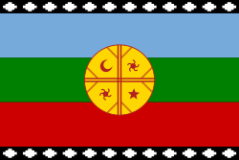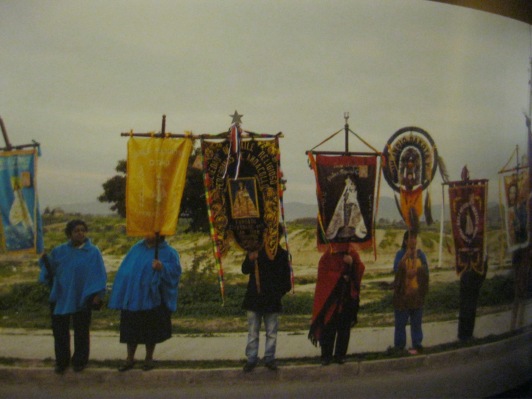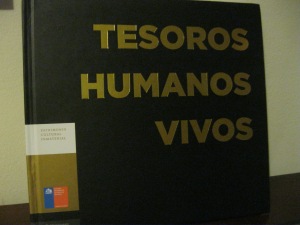




The Mapuche flag
The Mapuche people were fighters. They fought the Spanish and they fought against the independent republic founded in 1810. Mapuche means ‘people of the land’. The story of the appropriation of their land by the dominant society is a sad one but typical of what has happened to indigenous people throughout the world.
There is now a world consensus in favour of recognition of the rights of indigenous people. This consensus is enshrined in Convention No. 169 of the International Labor Organisation.
In most countries of Latin America the rights of indigenous people have been recognised in their Constitutions but this is not the case in Chile. Chile is one of the few countries of Latin America which has failed in this respect.
Estimates of the number of Mapuche in Chile today vary between 700,000 and 1,000,000. Depending on the source one reads, this comprises somewhere between 5% and 10% of the population of Chile.
Chile is out of step with progress in Latin America in failing to recognise the rights of the Mapuche in its Constitution but even more alarming is the depiction of Mapuche people as terrorists. To their shame, successive governments in recent years have used anti-terrorist laws (‘Ley Antiterrorista‘) introduced during the dictatorship of Pinochet.
Mapuche dissidents have been imprisoned, investigated, harassed and in general had their human rights violated. What is behind all this? In short, the greed of a group of wealthy Chilean families. It involves logging, mining projects, hydroelectricity plants, salmon fisheries, rubbish dumps and waste water plants. To influence the population at large against the Mapuche and in favour of so-called progress, these families also control the press.
For a well-researched and well-written examination of the position of the Mapuche people, see: ’The Mapuche People and Human Rights: Lights and Shadows after the Ratification by Chile of ILO Convention 169‘ by Anita Perricone, available at http://www.general-files.com/download/source/gs499b461bh32i0
For some life stories of indigenous people, the Government has published the following book Tesoros Humanos Vivos (Living Human Treasures)

page 134, ‘Tesoros Humanos Vivos’

published by Consejo Nacional de la Cultura y las Artes, March, 2012
Source: latinamericannotebook, August 6th, 2012